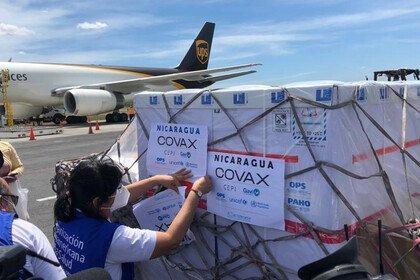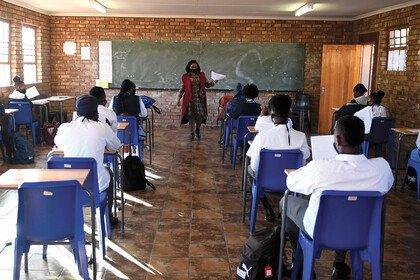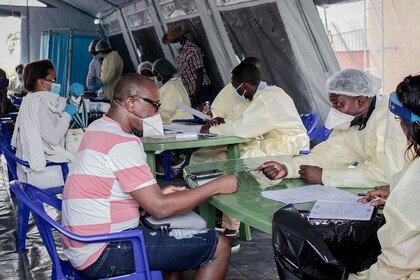
The road to 1 billion vaccines – what Covid-19 dose sharing commitments are needed from the G7
As the G7 leaders meet in Cornwall this month, we are calling on them to share 1 billion vaccine doses before the end of 2021, starting immediately.
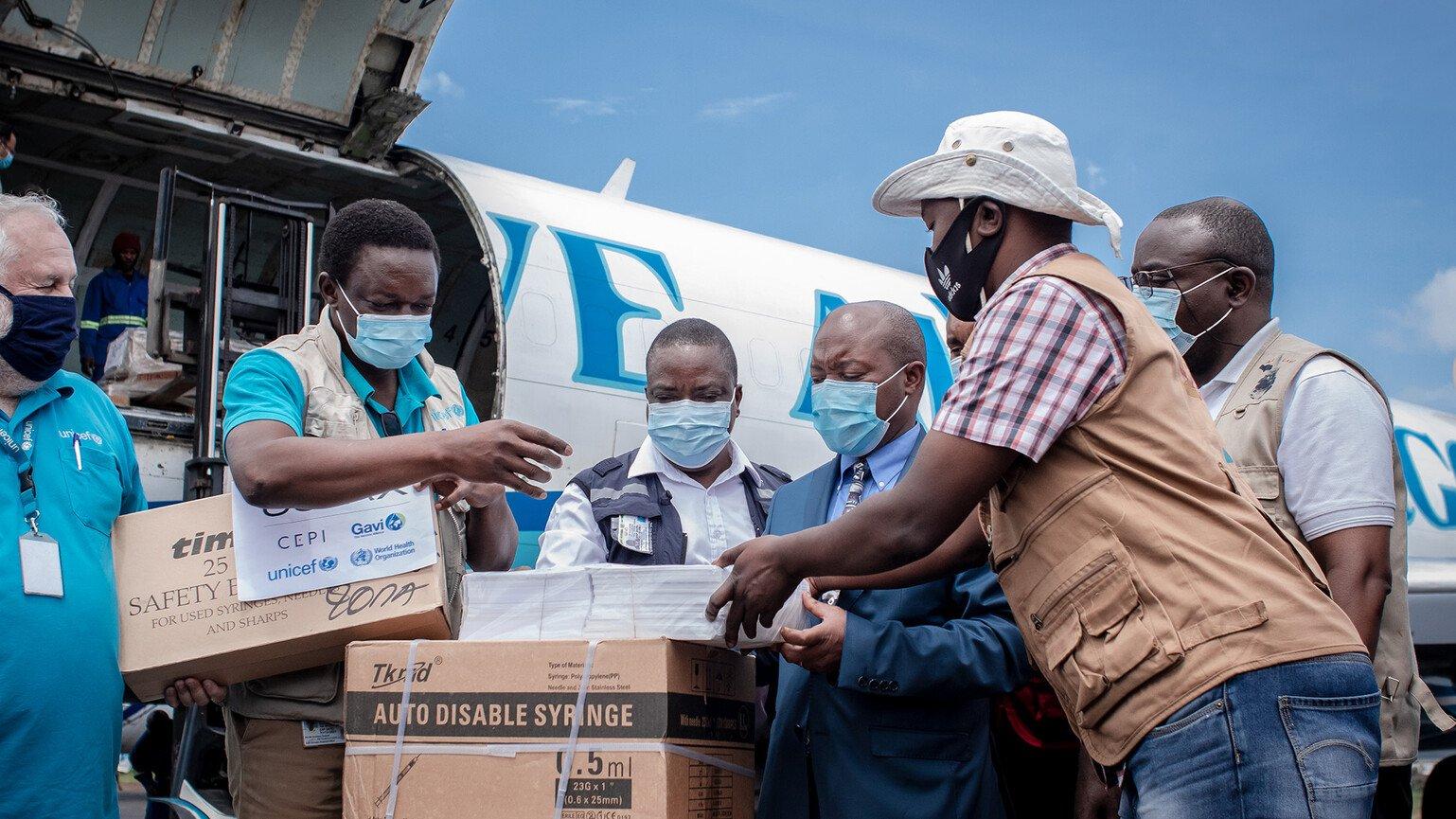
Guerchom Ndebo / Getty Images
Science has shown us the path out of the pandemic. However, without equitable global access to the tools science has provided us – vaccines, tests and treatments – we risk all the hard-won progress towards ending the pandemic.
As long as the virus is circulating anywhere, we are all at risk of dangerous variants developing that may spread around the world and bring us back to the start of the pandemic once again.
Equitable access to vaccines will have the biggest impact on tackling the pandemic this year, which is why we are calling on leaders from G7 countries to commit to sharing 1 billion Covid-19 vaccine doses at the G7 summit this June.
For some it has felt like the end of the pandemic is within its grasp due to highly successful vaccination rollouts and access to tests and treatments. But for much of the world the pandemic is raging on, and perhaps is just getting started. By the time the G7 leaders meet, it is expected that the death toll for 2021 will overtake that of the entirety of 2020.
The current state of Covid-19 vaccine access
Covid-19 vaccine access is currently far from equitable. The G7 have purchased over a third of the world’s vaccine supply, despite making up only 13% of the global population.
For example, G7 countries have distributed 528 million doses so far across their population of 610 million people. The whole of Africa, with twice as many people, has distributed just 34 million. To put it into further context, the rate of vaccination in high-income countries is 75 times that of low-income countries.
The crisis in India has only exacerbated this access inequity as the Serum Institute has had to reduce its shipments to COVAX by more than half. With almost all this year’s vaccine manufacturing capacity spoken for, the only way to get vaccines to those that need them around the world is for countries that have purchased more vaccines than they need to share them now.
Dr Tedros Adhanom put it quite bluntly:
There is no diplomatic way to say it: a small group of countries that make and buy the majority of the world’s vaccines control the fate of the rest of the world.
What are we calling on the G7 to do?
We want to see the G7 commit dollars and doses to the ACT-Accelerator. Both are needed urgently if we are to end the pandemic.
We are calling on the G7 to collectively commit to sharing 1 billion vaccine doses before the end of 2021, starting immediately, in parallel to their national rollout programmes and scaling up as more of their domestic populations are protected. Alongside this, it is crucial that they fully fund the ACT-Accelerator.
Criteria for adding dose numbers to our tracker include:
- from the G7
- for the doses committed to be shared through COVAX
- the number of doses to be specified
- commit to doses being shared by end of 2021
What has been committed so far?
Some G7 members have already started to commit doses, which is a positive step, but not with the urgency and scale required to end the pandemic.
Of the 155 million doses that have been committed, less than 150,000 have been shared with COVAX to reach the people who need them. COVAX is facing an urgent shortfall of 190 million doses by the end of June. We need leaders to commit more and commit to timeframes for the delivery.
Why 1 billion doses?
Given the scale of vaccine inequity caused by bilateral deals and supply issues facing COVAX, an ambitious target was always going to be needed. The number may seem big but is highly achievable given the vast numbers of vaccines purchased by the G7.
Analysis by the ONE Campaign indicates that G7 members will have access to around 1 billion doses even after fully vaccinating their entire populations
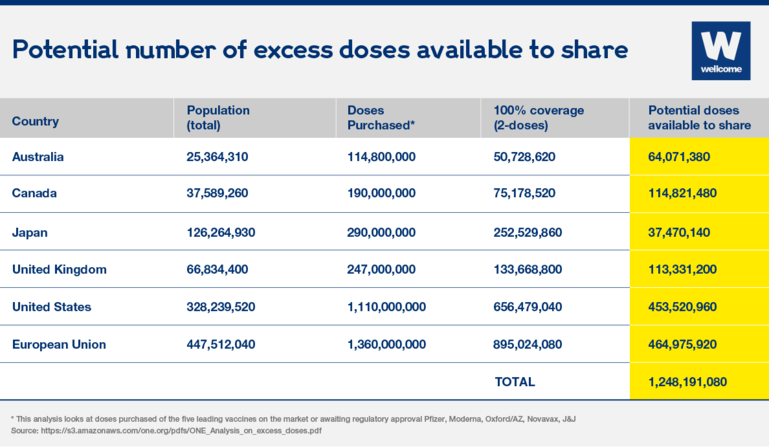
This estimate is a conservative one as it looks at what is surplus after fully vaccinating all children and accounts for 100% take up and demand in the entire population. Both scenarios are highly unlikely, meaning the number of doses available to share is sure to be higher.
Since this analysis was completed back in February, we have seen countries secure further deals, including 60 million additional doses secured by the UK and 600 million for the EU from Pfizer. This will only increase the quantity that can be shared.
Several other organisations have also backed a 1 billion dose sharing target.
The Bill and Melinda Gates Foundation have shared their analysis supporting a 1 billion doses shared target based on modelling, which assume 80% coverage with three doses for everyone aged 12 and over in G7 markets plus the EU. This analysis too is quite conservative making this ask quite achievable.
The Independent Panel on Pandemic Preparedness and Response has also been calling for 1 billion doses shared and is asking that they be committed before September, with a further billion doses committed by mid-2022.
COVAX is also calling for 1-1.5 billion doses.
What could 1 billion doses help us achieve?
Most importantly, sharing doses will help to alleviate immediate supply challenges – the reality is that COVAX has currently only rolled out doses for around 1% coverage in the countries it supports. It won’t reach its target of 23% in all countries this year unless governments who have bought up much of the supply step in to help.
Dose sharing will help COVAX stay on track despite the huge supply problems it has faced. Sharing 1 billion doses will mean that we can protect the 716 million vulnerable people around the world including healthcare workers and the elderly, many of whom are without access currently, while younger, less at-risk groups in wealthy countries are able to access vaccination.
Science has shown us the path of out this pandemic, but only if every country can walk it together. 1 billion doses shared will help us end this acute phase of the pandemic, save millions of lives and livelihoods and help the whole world start to recover.

